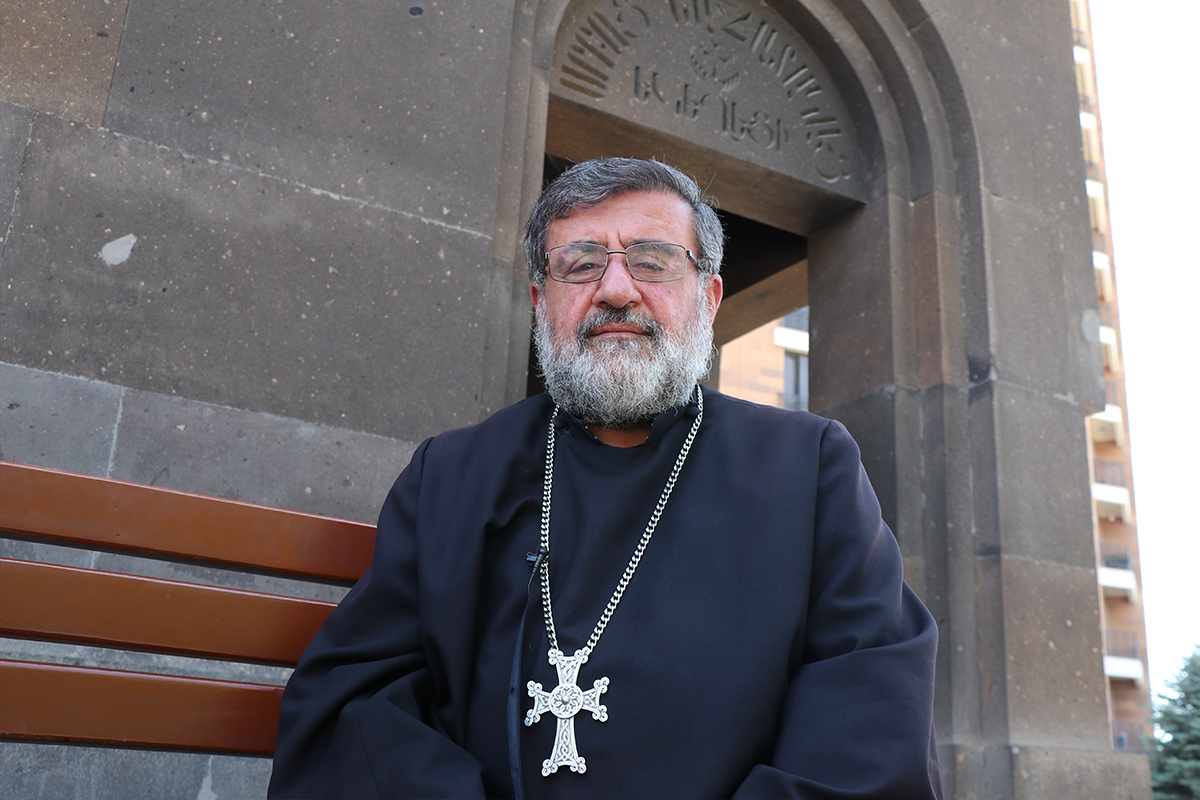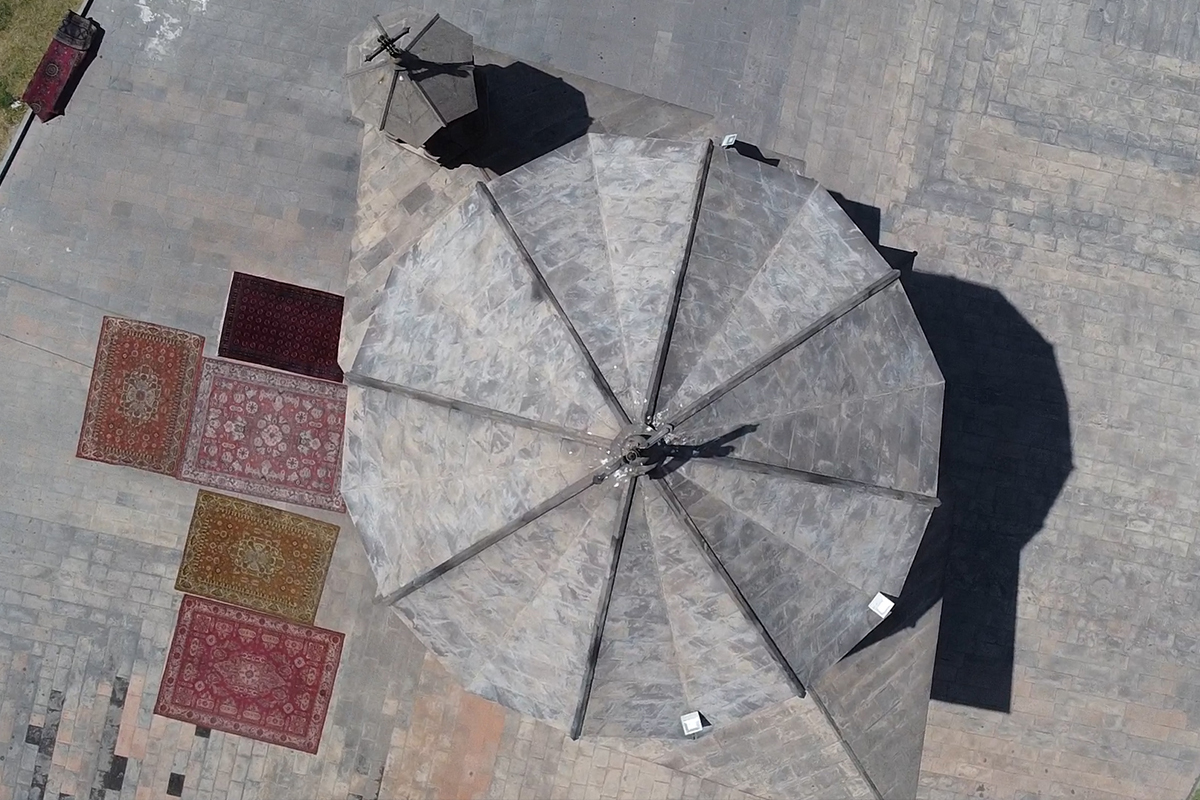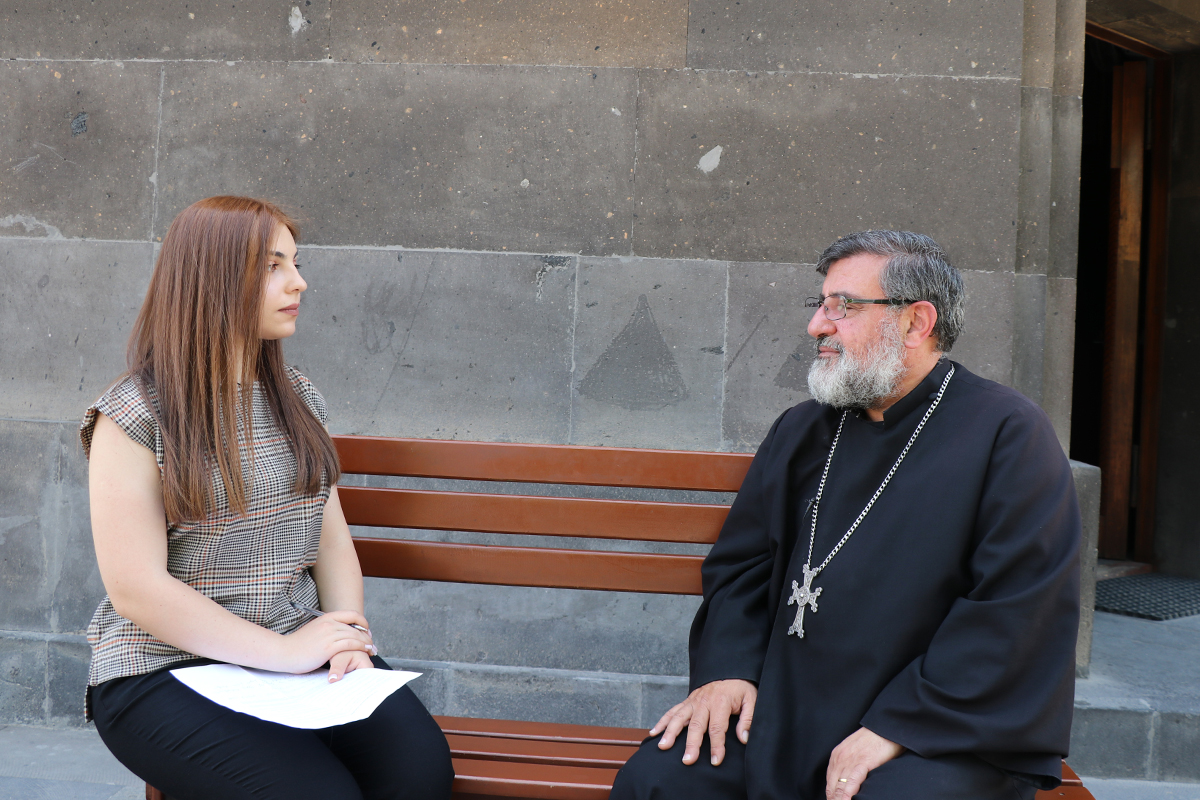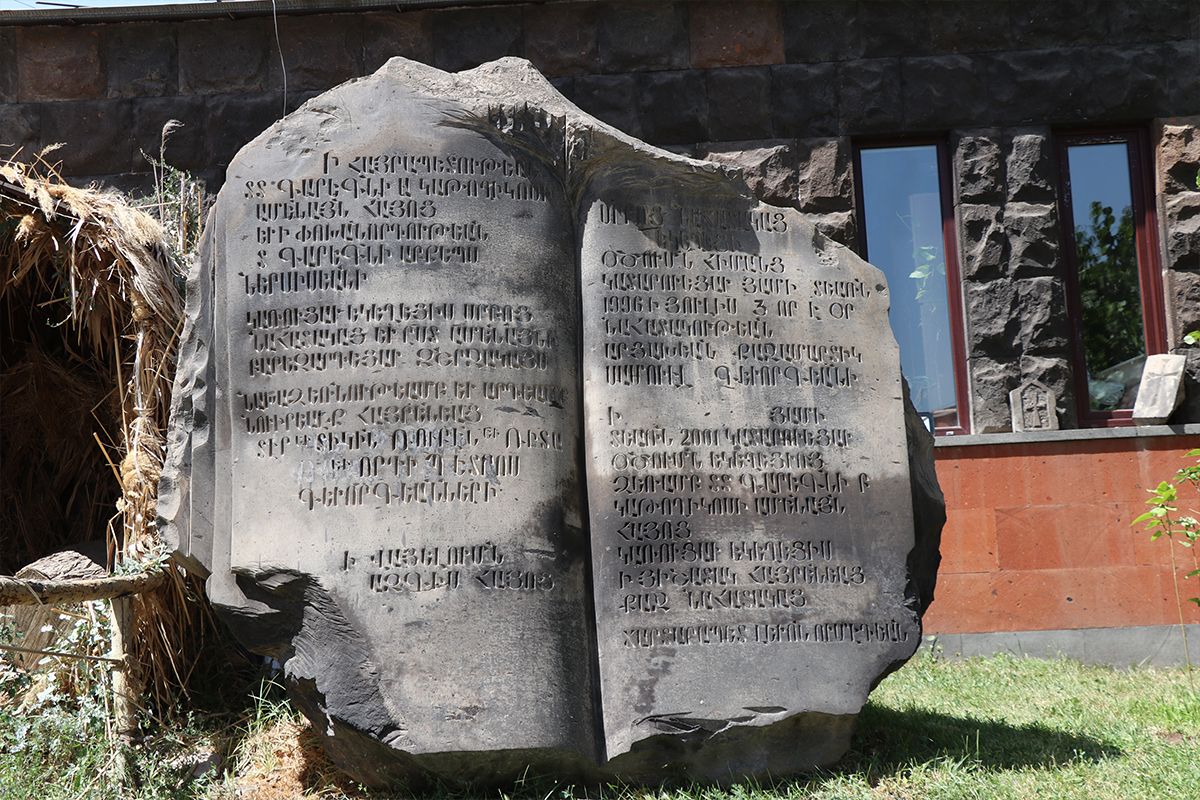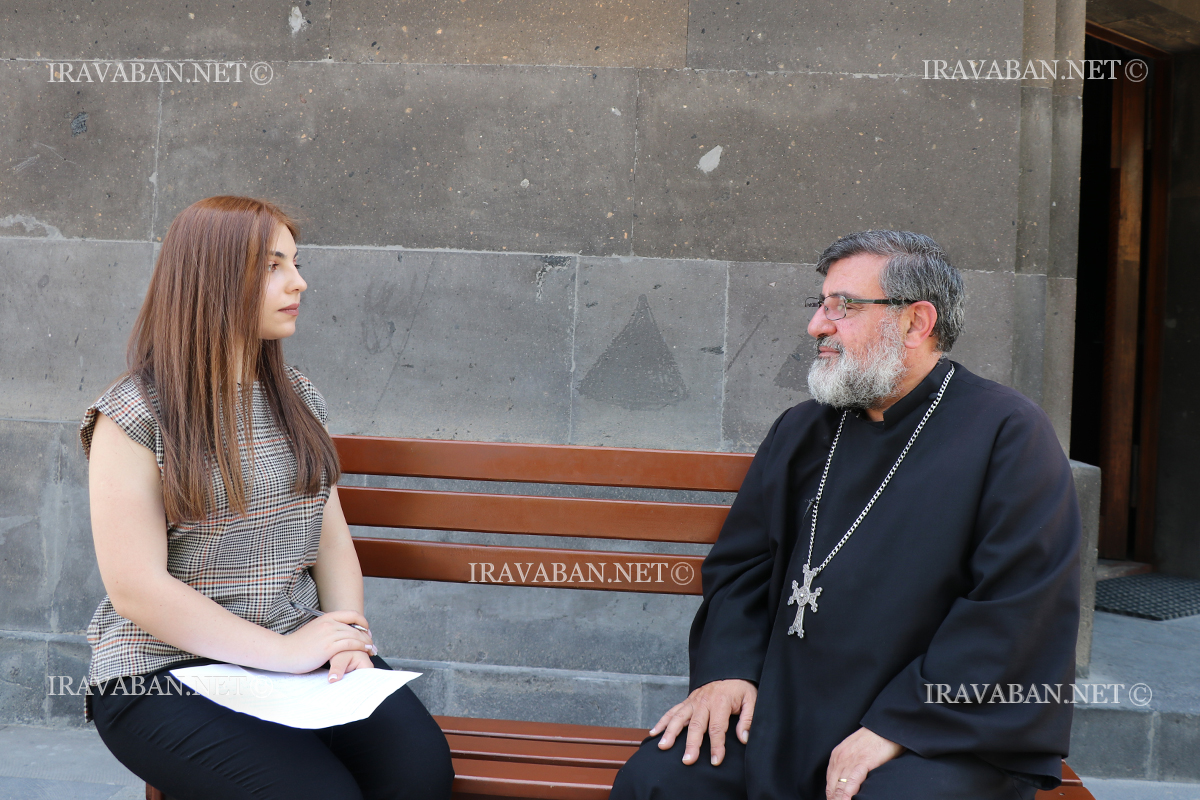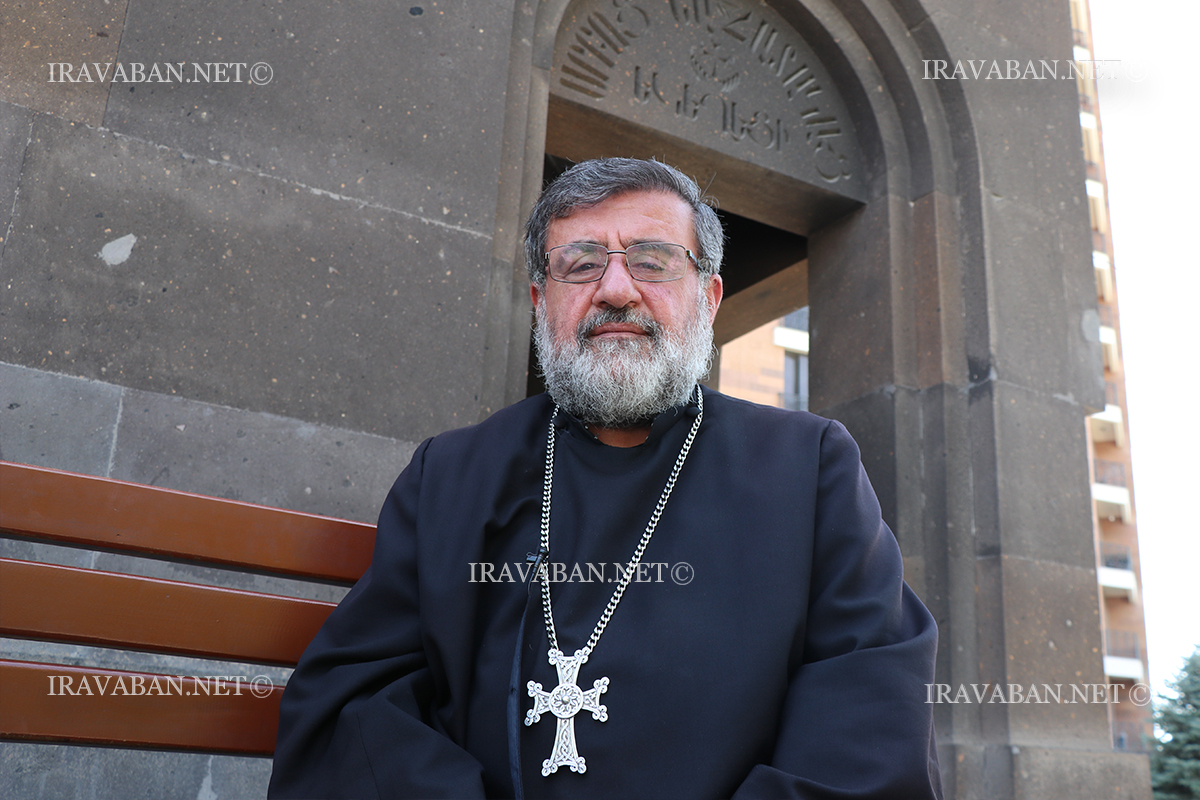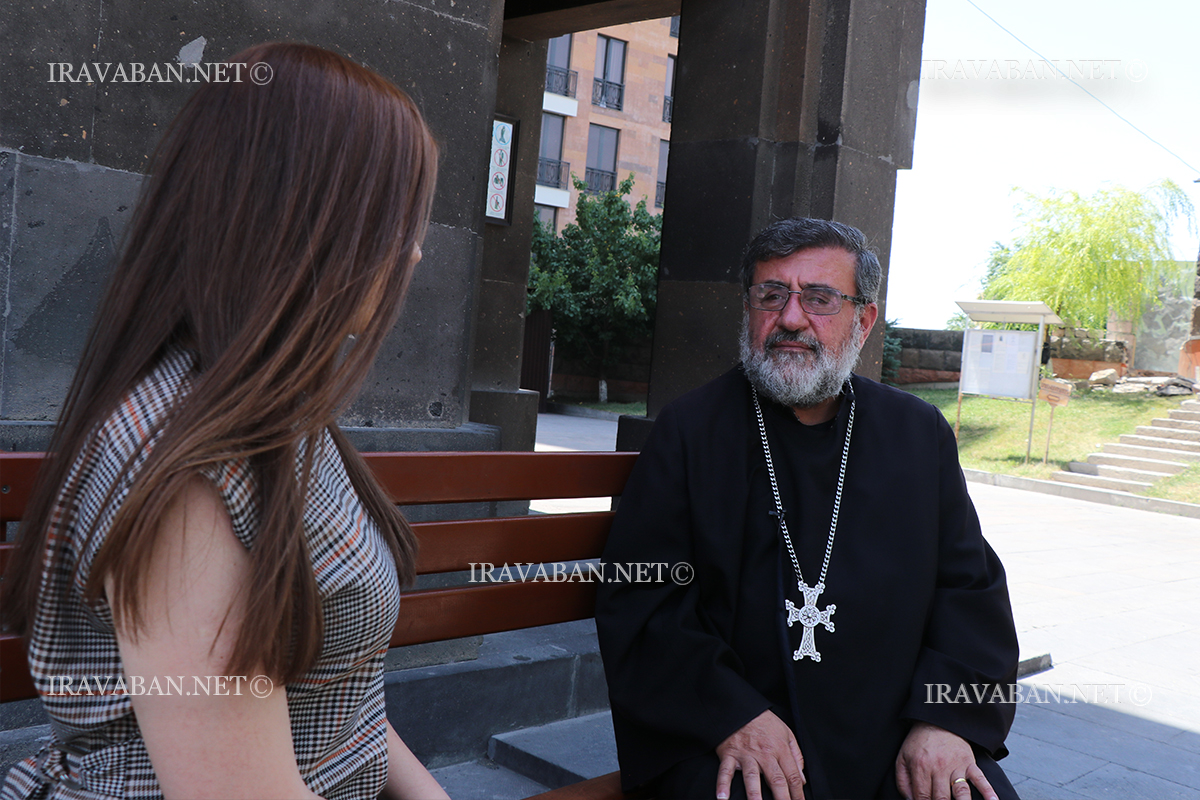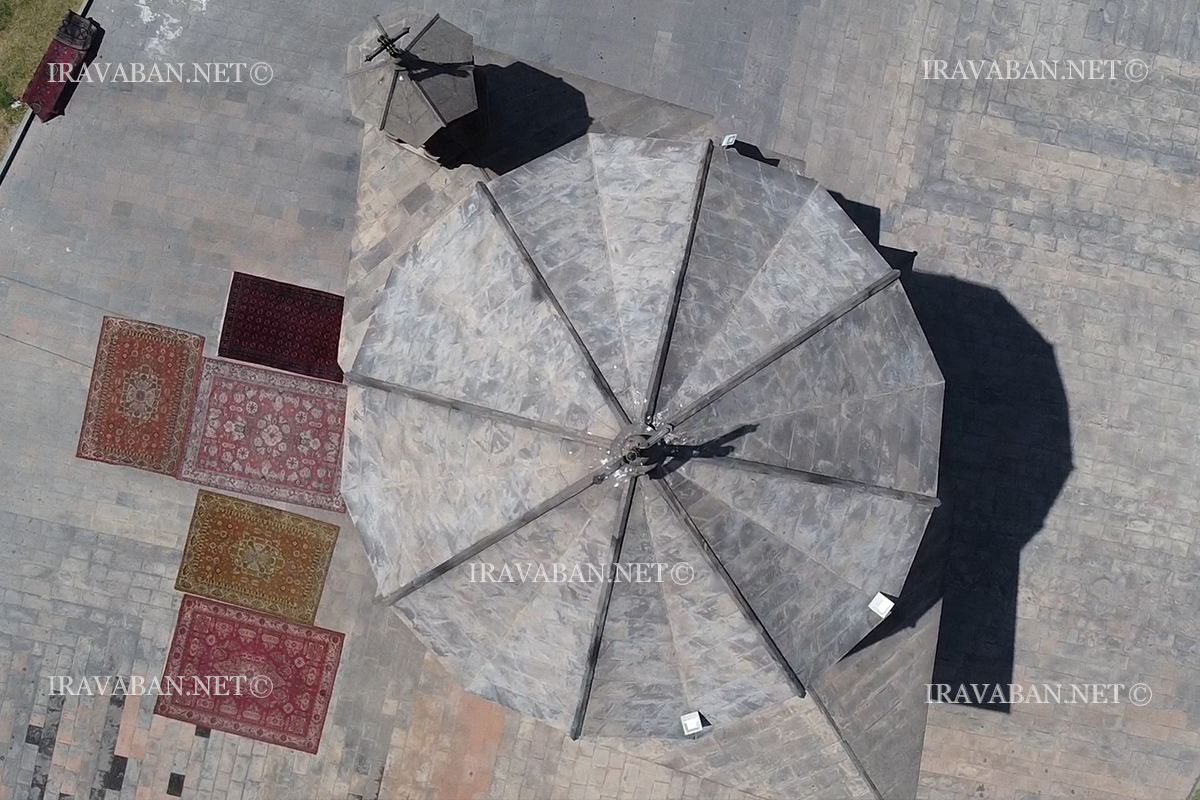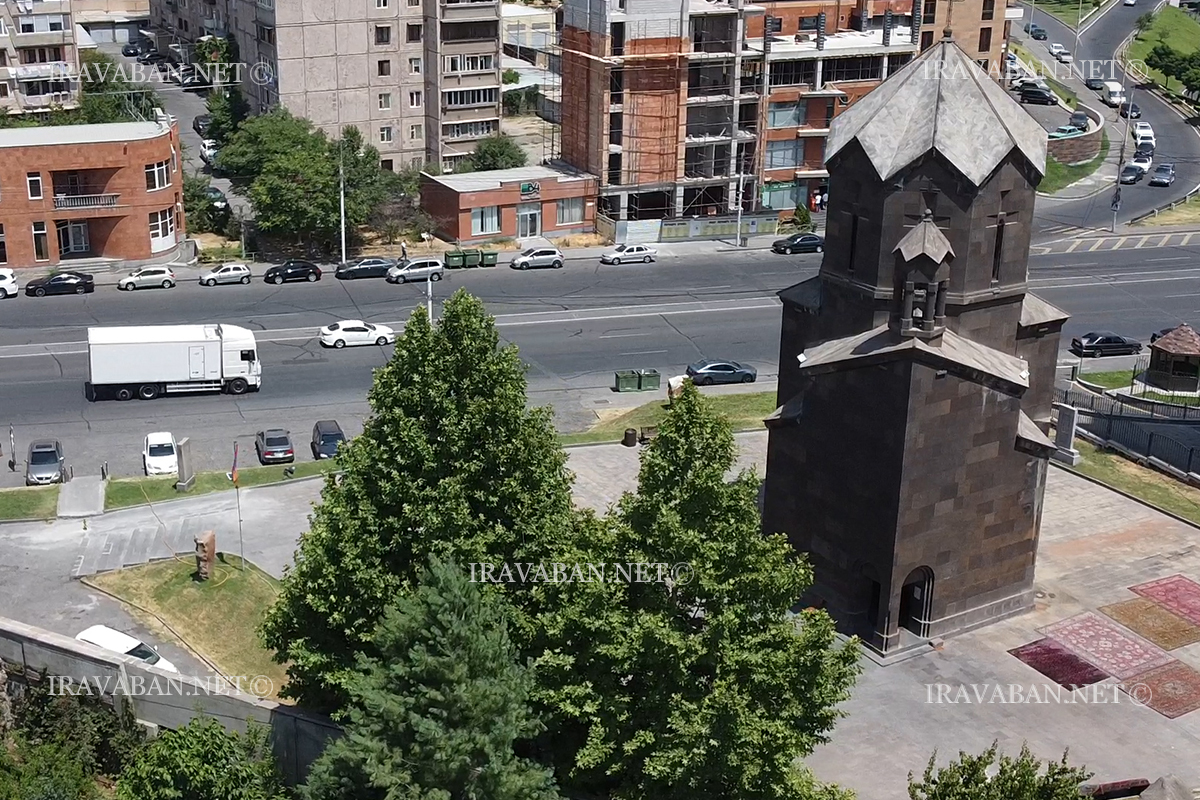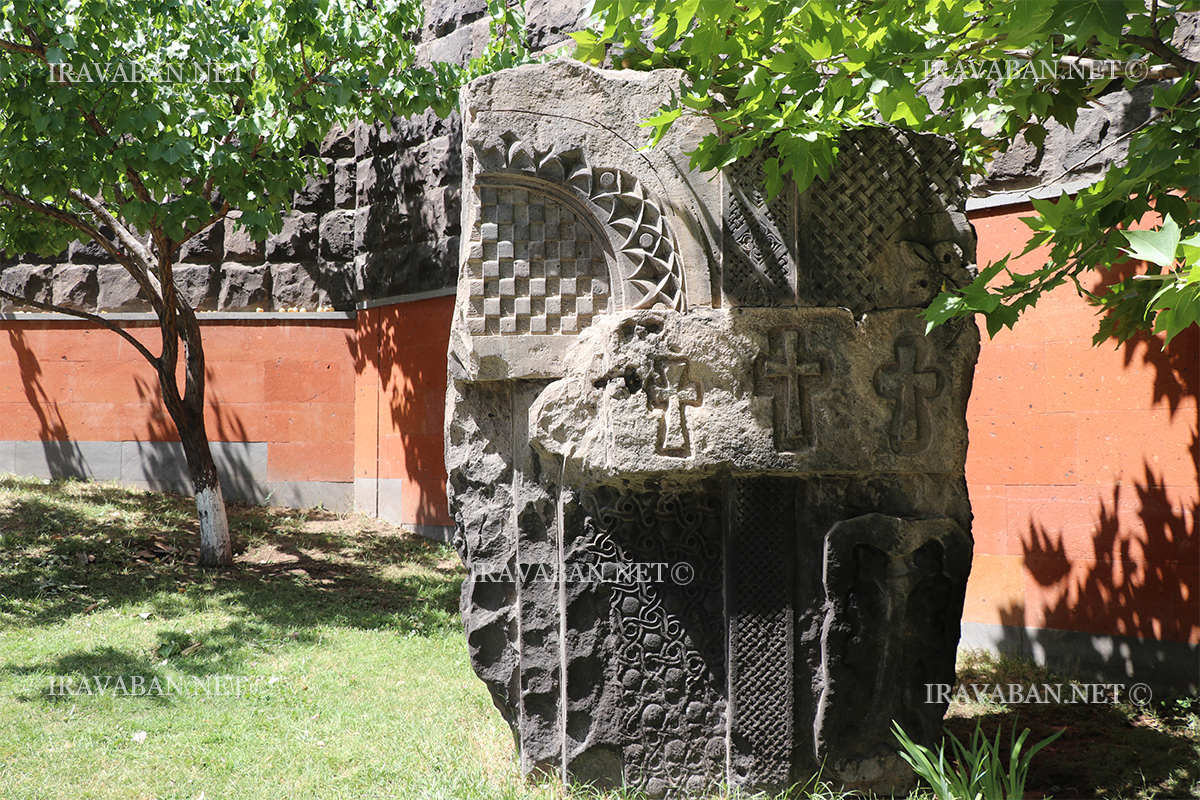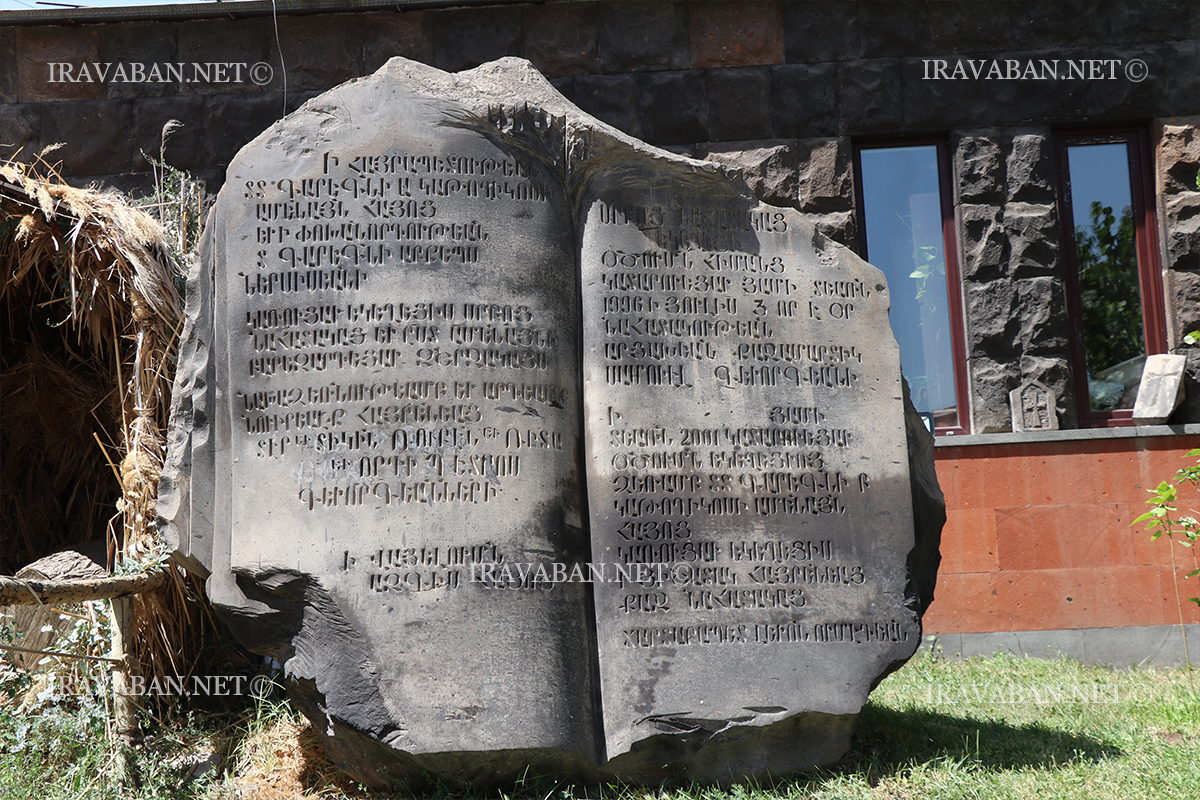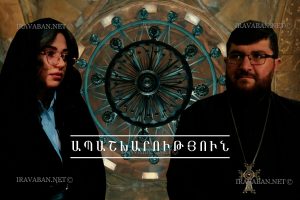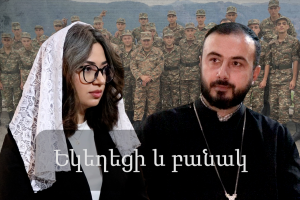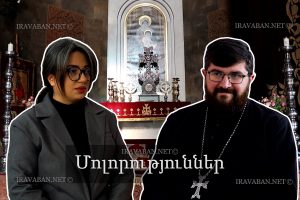The Feast of the Transfiguration of Christ or as it is known, Vardavar, is celebrated by the Armenian Apostolic Church on 11 July this year. Father Khoren Marukyan, the pastor of the Holy Martyrs Church in Davtashen, tells in the interview within the framework of Iravaban.net’s series “The Church and the Law”.
– Father Khoren, can you tell us what holiday Vardavar is?
– The Transfiguration is the third of our five pavilion feasts. Through Transfiguration, God reveals his divine essence, his nature. Prior to the Transfiguration, Christ exercised his own divine authority and power, but the Transfiguration was ultimately the culmination of his divine mission, in which he presented his divine essence as the human God.
The Gospel accounts show that Jesus and three of his apostles, Peter, James, and John, go to a mountain (later referred to as the Mount of Transfiguration) to pray. The disciples, tired of the day’s workload, fall asleep, and Christ, continuing his prayer, On the mountaintop, Jesus begins to shine with bright rays of light. That is, the whole face, the body is radiated even more than the sunlight.
That light was so strong that the apostles wake up and see Jesus Christ with the prophets Moses and Elijah. An intimate conversation took place, and the apostle Peter suggested that three pavilions be set up, one for Jesus and the other for Moses and Elijah.
At that moment the cloud comes, covers and overshadows the disciples, and the voice of God the Father was heard from heaven, which said “This is my beloved Son. When the disciples heard this, they were terrified and fell to the ground, and Jesus came and said, “Get up!” He urges not to tell about it until he is resurrected.
– What does the name Vardavar of the holiday mean?
– Of course, the name Vardavar is connected with the vernacular. There are many studies, but it is still unknown whether it is connected with the worship of Anahit or Astghik. It is supposed that people sprayed rose water on each other. And how does the Christian meaning relate to the rose? Jesus Christ was like a cocoon of a rose before the Transfiguration, but with the Transfiguration he opens like a rose. The tradition of sprinkling water on each other dates back to the time of Noah, when the ark stopped, Noah went down, and after that the custom of pouring water on each other was formed, as we always remember, sin caused God to punish with the flood. An occasion to try to stay away from sin.
– There is a widespread belief in the society that the tradition of sprinkling water comes from paganism. How would you comment on this?
– There is that pagan custom, but we think, we value it more, that it came from the time of Noah and it is very possible that it was passed on to different nations, and it came. Later it was also connected with the worship of water, but for us it is the Feast of the Transfiguration. And the church has also tried to preserve the folk game, the joy in some way, because it is our custom, it is a phenomenon related to the national identity, although it is connected with paganism. But in reality we emphasize that water was poured on each other from the time of Noah, so that people would remember that sin caused the whole world to be destroyed by the flood, but Noah, who was righteous, survived with his family.
– According to the rules of the church, Vardavar is a mobile holiday, celebrated 98 days after Easter, but in some settlements of Armenia, for example, in Tavush and Lori marzes, Vardavar is celebrated on the last Sunday of July. What is the reason for this?
– It seems to me that it is more of a local tradition. For example, the Blessing of the Grapes, the grapes ripen early in the Ararat region, and ripen late in the mountains and after one to two weeks. Now the Feast of the Transfiguration for us is the revelation of the deity of Christ, the essence, the revelation to man, and what is related to the game, the folk tradition, can be celebrated in different places at different times. There is also an opinion that Vardavar may be a custom left over from our Navasard holidays (the ancient Armenian New Year), that the people celebrated for a week or two.
– What rituals are performed in Vardavar? How do Christians celebrate?
– We enter the weekly fast until Vardavar, to prepare for the liturgy with repentance and fasting, so that to receive the sacrament during the liturgy by self-examination, confession, forgiveness. We do not have any other ritual related to Vardavar.
– Father Khoren, you spoke about the weekly fast, what is its meaning?
– In general, we have fasting days, Wednesdays and Fridays, dedicated to the betrayal and suffering of Christ. We also have weekly fasts. There are five pavilion holidays, as well as other weekends dedicated to the spring, fall, winter, and summer seasons, or the invention of the wafers of the Enlightener. That is, an opportunity is given for self-examination by direct fasting (the meaning of the same fast).
– What message do you want to send to the Armenian Christian on the occasion of Vardavar?
– Appreciate the whole Christian content of the holiday. We say that the deity revealed. The human God descended from heaven to us, the meaningless was contained in time, in size, in the limit, in order to free us from the power of sin. We say to value the 8th day, finally, the second coming of the Lord, the resurrection of the dead, God’s righteous judgment, and eternal life. It is very important to value all this so that we are ready. May we have a life of faith, obedience to the commandments, living the commandments to have eternal life with God. This is the meaning and purpose of our whole life.
Details in the video

